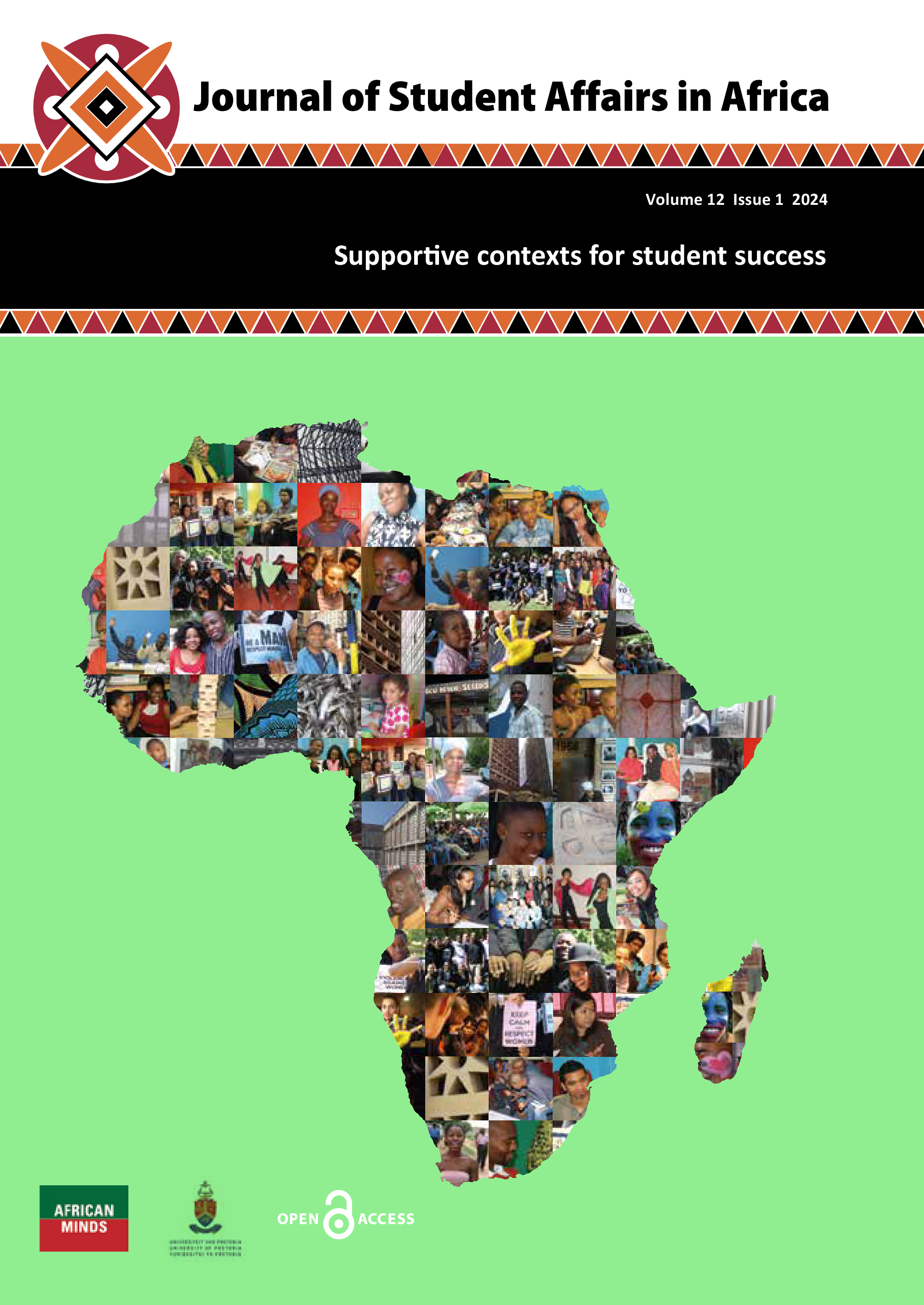South African private universities: The unique challenges of private university first-generation students – The unique opportunity for private higher education institutions
DOI:
https://doi.org/10.24085/jsaa.v12i1.5245Abstract
This article delves into the formidable obstacles first-generation students (FGS) encounter within the South African private higher education sector which locates the study on which it is based in the literature around the overall experience of first-generation students. Extensive research has underscored the various challenges faced by FGS, posing hindrances to their academic success in higher education. FGS often grapple with a complex journey fraught with challenges around finances, social adjustment, and epistemological access, to name a few. This research adopts a quantitative approach with a cross-sectional research design. The study utilises a 5-point Likert scale questionnaire supplemented by open-ended questions to gather data from a sample of 1 208 students. The study reveals that close to one-third (30.5%) of the sample found the academic requirements challenging, just less than two-thirds (63.6%) found the coursework overwhelming, and more than half (57.7%) received support from faculty and academic advisors. In terms of financial challenges, less than a
quarter (21%) indicated that they face financial challenges most of the time. The results of this study are reflective of similar research on the challenges experienced by South African FGS. The authors suggest that more research is needed to examine the unique challenges the FGS experience at private universities in South Africa. Moreover, the authors argue that an overall systemic and structural transformation is needed to enable institutional changes that would ease the challenges of all students.
Downloads
Published
Issue
Section
License
Copyright (c) 2024 Linda Meyer , Birgit Schreiber

This work is licensed under a Creative Commons Attribution-NonCommercial-ShareAlike 4.0 International License.
Authors who publish with this journal agree to the following terms:
Authors retain copyright and grant the journal right of first publication with the work simultaneously licensed under the Creative Commons Attribution Share-alike 4.0 International License that allows others to share the work with an acknowledgement of the work's authorship and initial publication in this journal.
Authors are able to enter into separate, additional contractual arrangements for the non-exclusive distribution of the journal's published version of the work (e.g., post it to an institutional repository or publish it in a book), with an acknowledgement of its initial publication in this journal.
Authors are permitted and encouraged to post their work online (e.g., in institutional repositories or on their website) prior to and during the submission process, as it can lead to productive exchanges, as well as earlier and greater citation of published work (See: The Effect of Open Access).


